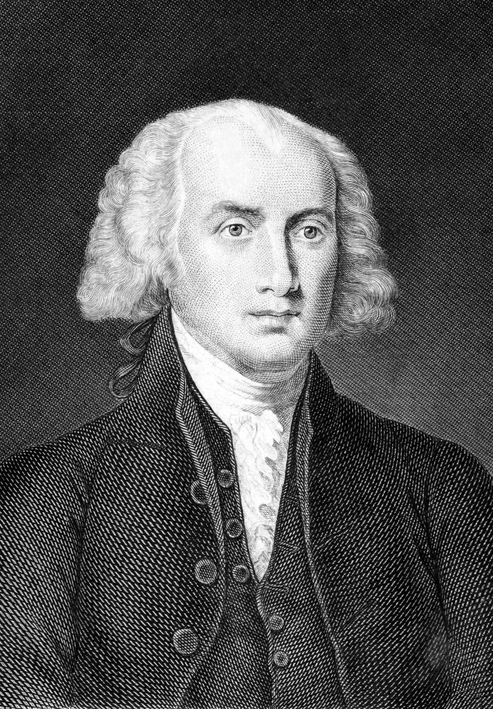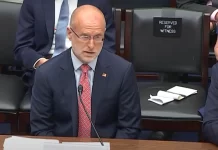
“Which is better—to be ruled by one tyrant three thousand miles away, or three thousand tyrants one mile away?”—Rev. Mather Blyes (1706-1788)
Does it really matter if the instrument curtailing liberty is a monarch or a popularly elected legislature? This conundrum, along with the witty version of it put to a Boston crowd in 1775 by the little-known colonial-era preacher with the famous uncle—Cotton Mather—addresses the age-old question of whether liberty can long survive in a democracy.
Blyes was a loyalist, who, along with about one-third of the American adult white male population in 1776, opposed the American Revolution and favored continued governance by Great Britain.
He didn’t fight for the king or agitate against George Washington’s troops; he merely warned of the dangers of too much democracy.
No liberty-minded thinker I know of seriously argues today in favor of a hereditary monarchy, but many of us are fearful of an out-of-control democracy, which is what we have in America today. I say “democracy” because there remain in our federal structure a few safeguards against runaway federal tyranny, such as the equal state representation in the Senate, the Electoral College, the state control of federal elections, and life-tenured federal judges and justices.
Of course, the Senate as originally crafted did not consist of popularly elected senators. Rather, they were appointed by state legislatures to represent the sovereign states as states, not the people in them. Part of James Madison’s genius was the construction of the federal government as a three-sided table. The first side stood for the people—the House of Representatives. The second side stood for the sovereign states that created the federal government—the Senate. And the third side stood for the nation-state—the presidency. The judiciary, whose prominent role today was unthinkable in 1789, was not part of this mix.
In his famous Bank Speech, Madison argued eloquently against legislation chartering a national bank because the authority to create a bank was not only not present in the Constitution but also was retained by the states and reserved to them by the Tenth Amendment.
In that speech, he warned that the creeping expansion of the federal government would trample the powers of the states and also the unenumerated rights of the people that the Ninth Amendment—his pride and joy because it protected natural rights—prohibited the government from denying or disparaging.
He gave that speech in February of 1791, 11 months before the addition of the Bill of Rights—the first 10 amendments—to the Constitution. Given the popular fears of a new central government, Madison assumed that the Bill of Rights would be quickly ratified. He was right.
His Bank Speech remains just as relevant today.
Had Madison been alive during the presidency of the anti-Madisonian Woodrow Wilson—who gave us World War I, the Federal Reserve, the administrative state and the federal income tax—he would have recoiled at a president destroying the three-sided table. Wilson did that by leading the campaign to amend the Constitution so as to provide for the direct popular election of senators. Nor would Madison have stomached the efforts today by liberal Democrats to amend the Constitution to provide for the direct popular election of the president.
Part of Madison’s genius was to craft anti-democratic elements into the Constitution. And some of them—like retaining state sovereignty—created laboratories of liberty. President Ronald Reagan reminded the American public in his first inaugural address that the states formed the federal government, not the other way around. Had I been the scrivener of that speech, I’d have begged him to add: “And the powers that the states gave to the feds, they can take back.”
Reagan also famously said that we could vote with our feet. If you don’t like the over-the-top regulations in Massachusetts, you can move to New Hampshire. If you are fed up with the highest state taxes in the union in New Jersey, you can move to Pennsylvania.
But the more state sovereignty the feds absorb—the more state governance that is federalized—the fewer differences there are among the regulatory and taxing structures of the states. This has happened because Congress has become a general legislature without regard for the constitutional limits imposed on it.
If Congress wants to regulate an area of human behavior that is clearly beyond its constitutional competence, it bribes the states to do so with borrowed or Federal Reserve-created cash. Thus, it offered hundreds of millions of dollars to the states to lower their speed limits on highways and to lower the acceptable blood alcohol level in peoples’ veins—this would truly have set Madison off—before a presumption of DWI may be argued; all in return for cash to pave state-maintained highways.
The states are partly to blame for this. They take whatever cash Congress offers, and they accept the strings that come with it. And they, too, are tyrants. The states mandated the unconstitutional and crippling lockdowns of 2020-2021, not the feds. The states should be paying the political and financial consequences for their misdeeds, not the feds. They took property and liberty without paying for it as the Constitution requires them to do, not the feds.
Blyes feared a government of 3,000. Today, the feds employ close to 3 million. Thomas Jefferson warned that when the federal treasury becomes a federal trough, and the people recognize it as such, they would only send to Washington politicians—faithless to the Constitution—who promise to bring home the most cash.
In a democracy, faithless to constitutional guarantees, the majority will take whatever it wants from the minority—including its liberty and property.
COPYRIGHT 2022 ANDREW P. NAPOLITANO
DISTRIBUTED BY CREATORS.COM
More from Judge Andrew. P. Napolitano









